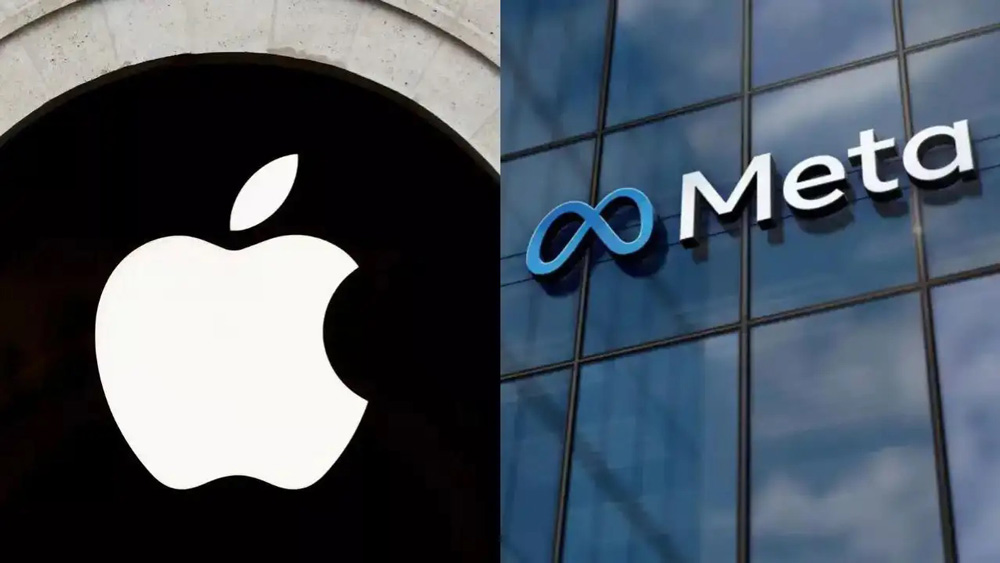The European Union’s decision to impose substantial fines on two of the world’s largest tech companies, Apple and Meta, marks a significant turning point in the global regulation of digital markets. With Apple facing a €500 million ($571 million) penalty and Meta €200 million ($228.4 million), the fines underscore the EU’s commitment to enforcing its Digital Markets Act (DMA) and curbing anti-competitive behavior in the rapidly evolving digital economy.
From an economic perspective, the EU’s actions highlight the growing tension between safeguarding consumer interests and fostering innovation in the tech sector. This article delves into the economic implications of the fines, their potential impact on market dynamics, and what they signal for the future of digital regulation.
The Economic Rationale Behind the Fines
The Digital Markets Act, which came into force in 2023, aims to ensure fairness in the digital marketplace by targeting “gatekeeper” companies—dominant firms that control crucial platforms and services. Apple and Meta, with their immense market power, have long been under scrutiny for practices that allegedly stymie competition and harm consumers.
Apple’s Anti-Steering Practices
Apple was fined for failing to comply with the DMA’s “anti-steering” obligations, which require developers to inform users of alternative payment methods outside of the App Store. By restricting developers from offering cheaper or alternative payment options, Apple effectively maintained its high commission fees, reducing consumer choice and increasing prices.
Economically, such practices can lead to reduced competition in app development and higher costs for consumers. The fine signals the EU’s intent to dismantle monopolistic practices that prevent smaller players from competing on equal footing.
Meta’s Data-Sharing Practices
Meta’s fine was tied to its policy of requiring users to either consent to data sharing for personalized ads or pay for an ad-free experience. The EU argued that this practice violated consumer rights under the DMA by coercing users into accepting unfavorable terms.
From an economic standpoint, Meta’s model reflects a broader debate over the monetization of data and its implications for privacy. By penalizing Meta, the EU is not only protecting data privacy but also challenging the prevailing business model of ad-supported digital platforms.
Market Implications
The fines are more than just monetary penalties—they signal a structural shift in how digital markets will operate in Europe.
Increased Compliance Costs
Both Apple and Meta will need to revise their business models to comply with the DMA. For Apple, this means allowing greater flexibility for developers, potentially reducing its lucrative App Store revenues. For Meta, it could mean rethinking its advertising model, which relies heavily on data-driven personalization.
These changes may increase compliance costs in the short term, potentially affecting profits. However, they could also level the playing field for smaller competitors, fostering greater innovation and competition.
Impact on Consumers
While the fines aim to protect consumer interests, the immediate impact on users is complex. For instance, Meta’s shift away from mandatory data sharing could lead to less personalized ads, potentially degrading the user experience. Similarly, if Apple passes on lost revenues to developers or consumers, app prices could rise.
In the long run, however, these changes may create a more competitive and transparent digital ecosystem, benefiting consumers through lower prices and greater choice.
Geopolitical and Strategic Implications
The fines also carry geopolitical undertones, as the EU asserts itself as a global leader in tech regulation. Joel Kaplan, Meta’s Chief Global Affairs Officer, criticized the EU for “handicapping successful American businesses while allowing Chinese and European companies to operate under different standards.”
While this critique raises valid concerns about global consistency in regulation, the EU’s actions reflect a broader push to challenge the dominance of U.S.-based tech giants. For policymakers in other regions, the EU’s enforcement of the DMA may serve as a blueprint for addressing similar issues in their own markets.
The Broader Economic Context
The EU’s crackdown comes at a time when the global digital economy is experiencing unprecedented growth and transformation. The fines on Apple and Meta are part of a broader effort to address the concentration of market power in the hands of a few dominant firms.
From an economist’s perspective, such interventions are necessary to prevent the formation of monopolies and ensure that markets remain dynamic and competitive. However, regulators must strike a delicate balance to avoid stifling innovation or imposing excessive costs on businesses.











